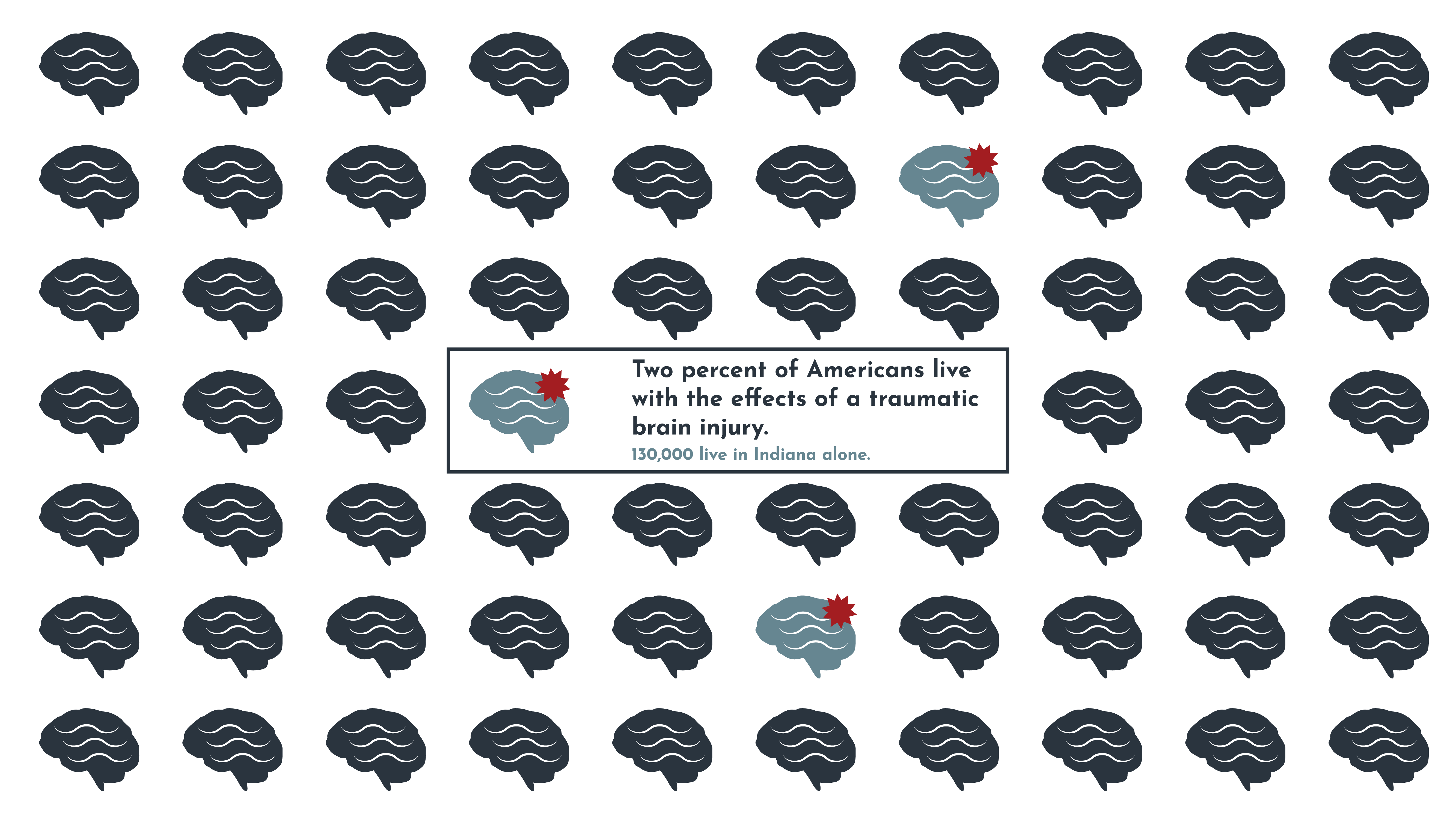
Did you know that approximately 2% of Americans live with the effects of a brain injury? In Indiana alone, there are over 130,000 individuals living with a long-term disability due to a traumatic brain injury (TBI). While everyone has a unique story, there are many common threads that bind them together. For most, the lives of these survivors changed dramatically after their accident with profound implications for their mental, functional, and emotional well-being. The fact that they also remember life before their accidents adds further emotional distress and creates a longing to regain what they know they have lost.
Individual Effects
A TBI may result in mild, moderate, or severe changes in one or more abilities, such as cognition, speech, physical functions, and social behavior. This affects the overall quality of life for these survivors and often results in great loss – loss of jobs, loss of friendships, loss of self-worth, and loss of community.
Studies of mild to severe brain injury survivors show only 34% are stably employed after three years and approximately 60% of moderate to severe TBI survivors do not return to work. Of those who do, most are not able to return to their former line of work or are unable to return permanently.
TBI survivors often feel isolated and lonely and want more out of life. They feel constrained, however, by their inability to follow conversations, to remember things, and to do physical activities that were once effortless. They feel lonely but often reluctant to leave the house, so they withdraw into their own world.
Due to their brain injuries, many of the survivors’ relationships are greatly impacted. In families, changes in roles and responsibilities can add stress and increase tension among members. Relationships with friends, coworkers, community members, even family members can become difficult to sustain. This can lead to or exacerbate already existing depression, anxiety, and other mental stressors.
Community Effects
When someone suffers from a TBI, the entire family is dramatically affected. Studies show that caregivers and other family members of people who have suffered a brain injury typically experience feelings of distress, anxiety, anger, and depression. These family members are often concerned about the future and what will happen when they are gone – namely where can their loved one live semi-independently and with purpose.
However, this can present a challenge when many TBI survivors need help throughout their day to perform even basic tasks and aren’t always able to receive it. They do often live at home with their parents who may work or have little time to provide appropriate caregiving, or they live in care facilities that are not designed to meet their unique needs.
People with a TBI differ from those with other disorders and disabilities that seem to have the same affects in that a TBI is an acquired injury. Each TBI survivor was living their life a certain way and now they must live differently due to their injury. This creates a dramatic “before and after” to their lives, and many lament the loss of the life they once had, which now seems unattainable.
Why we need Villa Licci
Villa Licci strives to bridge this gap of loss by creating a residential community encouraging friendship, cultivating independence, and providing a strong support structure. While it can never fully “bring back” what once was, it can help survivors transition to a new and fulfilling life with purpose and meaning.
Won’t you consider supporting this dream and helping it become reality?




